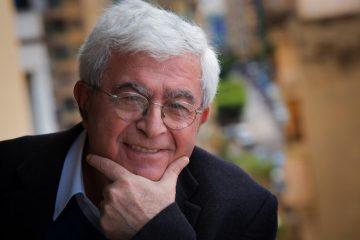Isabella Hammad in the New York Review of Books:
 Adam Dannoun, the protagonist of Elias Khoury’s powerful new novel, calls himself a child of the ghetto. He does not mean the Warsaw ghetto — although, growing up in the newly established state of Israel, he allows his university colleagues to make that assumption. He means the “ghetto” of the Palestinian town of Lydda, created by Jewish forces who uprooted tens of thousands of Palestinians on a death march in one of the bloodiest massacres of the 1948 Nakba. (That term, which Arabs use for the founding of the Jewish state, means “catastrophe.”) Adam, a baby at the time, was one of those who remained.
Adam Dannoun, the protagonist of Elias Khoury’s powerful new novel, calls himself a child of the ghetto. He does not mean the Warsaw ghetto — although, growing up in the newly established state of Israel, he allows his university colleagues to make that assumption. He means the “ghetto” of the Palestinian town of Lydda, created by Jewish forces who uprooted tens of thousands of Palestinians on a death march in one of the bloodiest massacres of the 1948 Nakba. (That term, which Arabs use for the founding of the Jewish state, means “catastrophe.”) Adam, a baby at the time, was one of those who remained.
Through layers and levels of storytelling — we are in familiar Khoury territory here, moving in and out of various narrations — “Children of the Ghetto” ponders the silence of those who stayed in Lydda. To survive in the new state they lived “as invisible people.” Why were they silent — to avoid being killed? Because they had given up hope? Or because what they had gone through was unspeakable, an experience for which “silence is more eloquent than words”?
More here.
